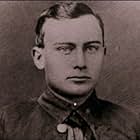A comprehensive survey of the American Civil War.A comprehensive survey of the American Civil War.A comprehensive survey of the American Civil War.
- Won 2 Primetime Emmys
- 14 wins & 3 nominations total
Browse episodes
Storyline
Did you know
- TriviaShelby Foote became a celebrity after the success of this mini-series. Foote's phone number was listed in his local phone book, and he received frequent calls from fans. He never removed his number from the phone book, and received calls whenever the mini-series aired for the rest of his life.
- GoofsContrary to this documentary (and many historians) Winfield Scott never recommended Robet E. Lee for anything more than a "significant command" nor did Lincoln offer Lee command of the Union Army.
An advisor to the President, Francis P. Blair, DID offer Lee command of the Defenses of Washington, via letter, but there are NO records that Lee. An Lincoln ever met in person.
- Quotes
Abraham Lincoln: As a nation, we began by declaring that "All men are created equal." We now practically read it, "All men are created equal, except Negroes." Soon, it will read "All men are created equal, except Negroes, and Foreigners and Catholics." When it comes to this, I should prefer emigrating to some country where they make no pretense of loving liberty. To Russia, for instance, where despotism can be taken pure and without the base alloy of hypocrisy.
- ConnectionsFeatured in Entertainment Weekly's the New Classics: TV (2008)
Featured review
Broke new ground, still unsurpassed.
Contrary to the only other comment so far, I found this inspiring and elevating. I understood the civil war in a way nothing else in 17 years of formal education did. Burns was trying to tell what is perhaps the most compelling story since this country was founded. He had no footage, and was not interested in dramatizing the battles (which is notoriously difficult to to without boosting one side). Instead, he found a way to take the still images and remnants of the war and the stories of individuals and make them more real than any movie could do. Eleven hours of reenactments would have been interminable - and silly - as vaunted as the reenactors are, they get away with it because they are romanticized - can you imagine reenacting Ardennes or Khe Sanh? In a world where TV viewership is measured in 5-minute chunks if you're lucky, Burns kept viewers' attention for 11+ hours - and with no commercials - quite a feat.
helpful•678
- jpellino
- Jan 2, 2005
- How many seasons does The Civil War have?Powered by Alexa
Details
Contribute to this page
Suggest an edit or add missing content











































